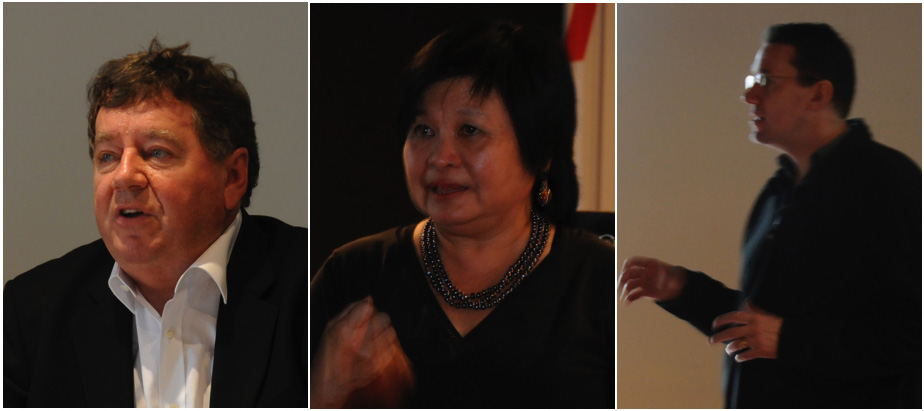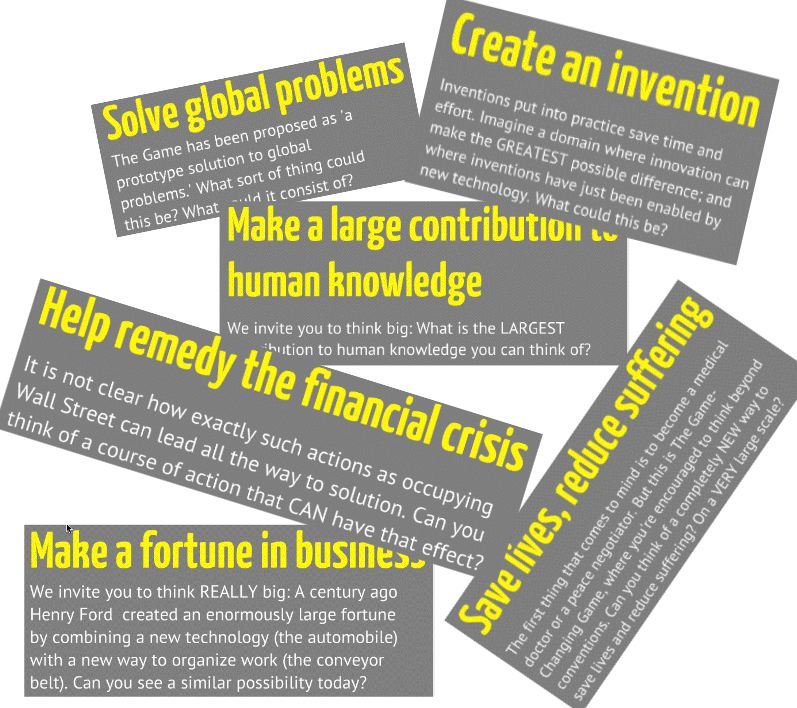N-prototypes
Contents
Prototypes
Prototypes are to the transdiscipline as traditional publications are to disciplinary sciences.
They restore the broken tie between information and action; they give information the power to make the difference—by updating systems.
A prototype is
- a model, functioning in reality, which serves as a template, exhibiting a collection of challenge–solution pairs, or design patterns as I am calling them; and showing how to combine those design patterns in a coherently functioning whole an intervention, strategically designed to alter certain conventional practice or system
an experiment, showing what in the proposed design works well, and what needs to be improved.
The knowledge federation prototype has been conceived in terms of about forty smaller prototypes; which model new ways to implement all those various parts and functions that constitute a discipline—ranging from epistemology and methodology to a community of state-of-the-art experts and examples of application. Together those prototypes compose a coherent whole—a prototype of a functioning transdiscipline.
Journalism or public informing
How can I do justice to the Innovation Ecosystem for Good Journalism prototype we created in Barcelona in only a few paragraphs? I’ll only highlight a couple of its design patterns; beginning with the important one:
This prototype was a federated answer to the pivotal question “What should public informing be like to serve as guiding light to postindustrial democracy?”
Its salient characteristic was to add to perceived problems (the creators of Barcelona’s WikiDiario citizen journalism project were part of our team) systemic solutions; identified and explained by academic experts; and then made comprehensible by knowledge federation’s communication design team.
How else shall we the people ever know that, for instance, “corporate personhood” could be an issue?
Our Barcelona prototype prototyped also a system by which journalism could be created and perpetually re-created.

We were fortunate to have with us Paddy Coulter; who had been both a model journalist and the Dean of Oxford University’s Reuters Institute for the Study of Journalism; he too was a keynoter at our formative 2010 workshop in Dubrovnik. In the manner of giving the good journalism tradition the reigns, we asked Paddy to chair the Barcelona event.
We techies should not allow ourselves to reinvent journalism.
Our task was to facilitate its evolution—by federating transformative memes. In Barcelona workshop Mei Lin Fung represented the Engelbart community and legacy; David Price—who co-founded DebateGraph, and developed it to be the world’s premier collective mind initiative—led the technology team.
Journalism or public informing
File:Collaborology-flyer.jpg

